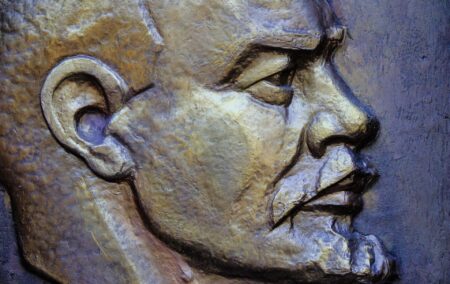A few weeks ago The Star published a tribute to Lenin on the 150th anniversary of his birth written by Floyd Shivambu, deputy president of the Economic Freedom Fighters (EFF).
Mr Shivambu informed us that Lenin had bequeathed the world ‘profound scientific tools of analysis’ along with ‘guides to action for all working-class struggles’, and the like. The tribute was headed ‘the revolution continues’, which is of course the hope of the EFF and many in South Africa’s two ruling parties who see themselves as Lenin-inspired ‘vanguard organizations of the working class’.
Totally absent from Mr Shivambu’s article was any mention of any of the ‘actions’ that Lenin actually took once he had seized power in his putsch in October 1917. Within a few weeks he had started closing down opposition newspapers, smashing the presses on which they were printed, confiscating newsprint, and arresting editors. The Bolshevik-dominated congress of soviets swiftly gave the council of people’s commissars, which he headed, the power to legislate by decree. Local peasant communities were authorized to seize and subdivide private land. Bolshevik squads broke into banks and stole the money.
By the end of the year, members of the opposition Cadet party had been branded as ‘counter-revolutionaries’ and ‘enemies of the people’, and some of its leaders had been arrested. The legal profession had been dissolved, and courts replaced by revolutionary tribunals. Not least, the Bolsheviks had established the Cheka, their secret political police force that was the forerunner of Ogpu, the NKVD, and the KGB. Right from the start, it operated outside any legal constraints, presaging the official policy of Red Terror launched in September 1918.
Summary executions
In elections in November 1917 for a constituent assembly, the Bolsheviks won only 24% of the vote. The assembly did not survive beyond January 1918. The following month, declaring the ‘socialist fatherland’ to be in danger, Lenin issued a decree authorizing the summary executions of opponents. By the middle of that year, war had been declared against the kulaks, derided as ‘a peasant bourgeoisie’. A few months later Lenin called for public hangings and extermination of the kulaks.
Mass executions soon began, while concentration camps were established for kulaks, priests, and other ‘doubtful elements’. These were the beginnings of slave labour and the gulag system. Part of the reason for the war against the kulaks was ideological in that they were seen as class enemies, but they had also infuriated the Bolsheviks by resisting the confiscation of the their grain.
Nor did the Bolsheviks forget the working class. A compulsory labour decree in January 1918 provided for workers to be conscripted for service as if they were soldiers. Strikes were permitted against private businesses but not those owned by the state; as nationalization gathered pace, more and more strikes became unlawful. Workers who went on strike were sometimes executed without trial. Some were thrown into the Volga and shot. The Bolsheviks soon established control of all trade union appointments.
Organised violence
Lenin proclaimed that the state was a system of organised violence against the bourgeoisie, but striking workers declared that the Bolshevik government was ‘nothing but the dictatorship of the central committee of the Communist Party kept in power thanks to the Cheka and revolutionary courts’.
Lenin authorized the murder of the tsar and his family. In an astonishingly short period of time he established a dictatorship and a system of state-sponsored slavery and mass murder that was to endure down the decades. He embarked on state terror as his key instrument of rule.
Not the least of his achievements was to dupe large numbers of Western politicians, trade unionists, journalists, academics, diplomats, and intellectuals who had the luxury of living in free societies of the kind he despised. A century after he seized power, his ideas continue to bewitch large numbers of people, not least in South Africa. That makes his contribution to moral and intellectual history among the most influential of all time. He also launched the first of the great criminal regimes that have characterized so much of the past 100 years.
If Mr Shivambu does not know this, his education has been grossly deficient. If he does, but chooses to conceal it, we must thank him for unintentionally giving us so telling an insight into some of the ideas that drive his party, and no doubt some of the others who sit with them in Parliament.
If you like what you have just read, subscribe to the Daily Friend

